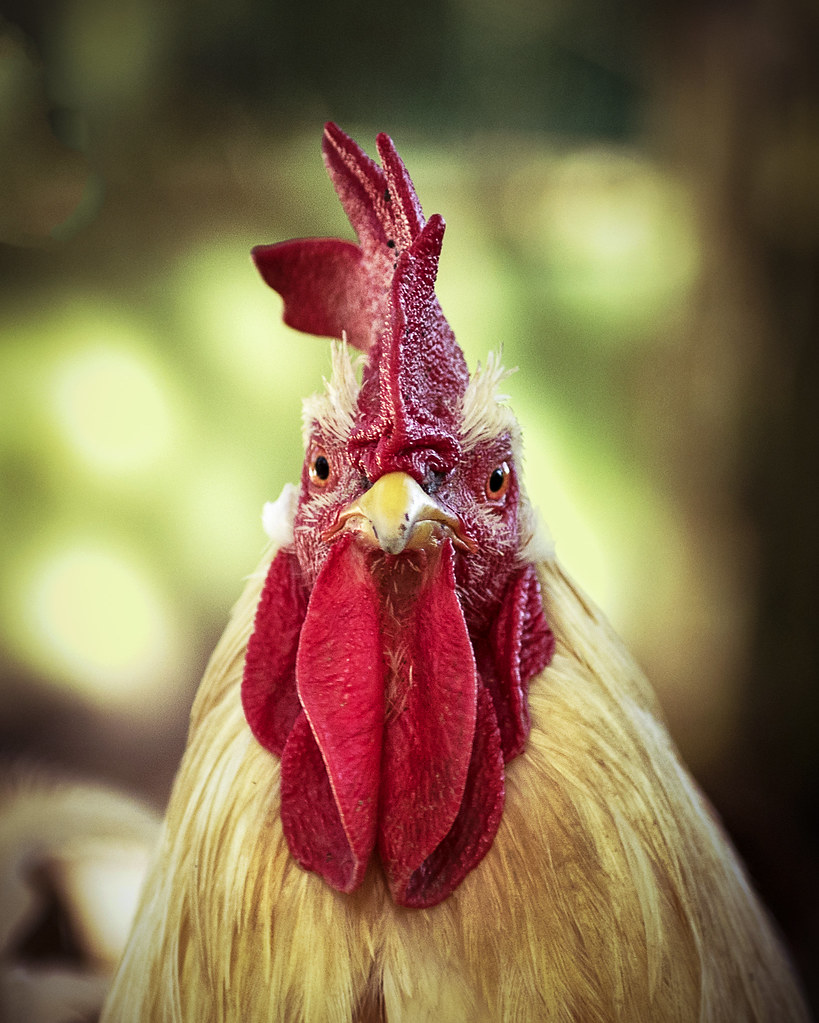In the world of poultry, where feathers reign and clucks fill the air, roosters hold a prestigious role as the guardians of the flock. With their vibrant plumage and majestic crowing, they strut through the barnyard, embodying strength and dominance. However, there comes a time when the line between power and aggression becomes blurred, leaving chicken enthusiasts perplexed on how to handle these feisty fowl. If you find yourself in the presence of an aggressive rooster hell-bent on asserting its dominance, fear not, for we have the perfect guide to equip you with the knowledge and techniques needed to navigate the tumultuous realm of handling aggressive roosters. So, put on your sturdy boots and fasten your thinking caps, because it’s time to crack the code of these formidable feathered creatures and restore harmony to your flock.

Understanding the Aggressive Behavior of Roosters: Unraveling the Motives Behind their Actions

Unraveling the Motives Behind their Actions
When observing the aggressive behavior of roosters, it is crucial to understand the motives behind their actions. While each rooster’s reasoning may vary, several factors contribute to their aggressive tendencies:
- Protection: Roosters are fiercely protective of their flock, displaying aggression towards anything they perceive as a threat.
- Establishing Dominance: As natural leaders, roosters often engage in aggressive behavior to establish their dominance within the pecking order.
- Territoriality: Roosters defend their territory from intruders, resulting in aggressive displays.
By unraveling these motives, we gain insight into the complex nature of roosters and develop a better understanding of their aggressive behavior.
Mastering Effective Techniques to Safely Handle Aggressive Roosters: A Comprehensive Guide for Poultry Keepers

Understanding Aggressive Behavior in Roosters
Before delving into effective techniques for handling aggressive roosters, it is crucial to understand the reasons behind their aggressive behavior. Roosters can become aggressive due to dominance issues, territoriality, or fear. This section will explore the psychological and physiological factors that contribute to aggression in roosters.
Implementing Safe Handling Practices
When dealing with aggressive roosters, safety should always be a priority. This section will outline practical tips and techniques for ensuring your personal safety when handling these birds. From wearing protective clothing to using proper restraining methods, we will cover everything you need to know to handle aggressive roosters without getting hurt.
Training and Behavioral Modification
Mastering effective techniques to handle aggressive roosters requires patience and skill. In this section, we will explore various training methods and behavioral modification techniques that can be used to tame aggressive roosters. From positive reinforcement to desensitization exercises, we will provide a comprehensive guide on how to effectively train your roosters and promote positive behavior.
Creating a Positive Environment
Creating a safe and stress-free environment is essential for managing aggression in roosters. This section will offer insights on how to design and maintain a rooster-friendly space that minimizes conflict and enhances their overall well-being. Topics covered will include proper housing, enrichment activities, and flock integration strategies for minimizing aggression.
Seeking Professional Help
In advanced cases or if you feel overwhelmed, seeking professional help is recommended. This final section will guide you through the process of finding experienced poultry behaviorists or veterinarians who can provide expert guidance and support. We will outline the benefits of seeking professional help and provide tips on locating reputable professionals in your area.
Future Outlook about How to Handle Aggressive Roosters.
In conclusion, dealing with aggressive roosters can certainly be a challenge, but armed with the right knowledge and techniques, you can maintain harmony in your chicken flock and enjoy a safer environment. Remember, aggressive behavior is often a result of a rooster’s natural instincts, but it doesn’t mean you have to tolerate it. By implementing the strategies discussed in this article, such as providing adequate space, socializing from an early age, and utilizing protective gear, you can effectively manage and even transform aggressive roosters into more docile and cooperative members of your flock.
Handling an aggressive rooster requires patience, dedication, and a good understanding of your feathered friend’s behavior. It is essential to always prioritize your safety and that of your flock, especially when aggression escalates. If necessary, don’t hesitate to seek professional advice or assistance from an experienced poultryman or veterinarian.
Remember, roosters play a vital role in your chicken flock, providing protection, fertilizing eggs, and establishing order within the group. However, when their natural instincts get the better of them, understanding how to handle their aggression is crucial. By employing the methods discussed throughout this article, you can establish a harmonious environment for both yourself and your beloved chickens.
So, next time an overly aggressive rooster tries to disrupt the peace in your coop, equip yourself with knowledge and patience to tackle this challenge head-on. With perseverance and a little creativity, you’ll be able to nurture a healthier and safer environment for your flock. Happy rooster-handling!
